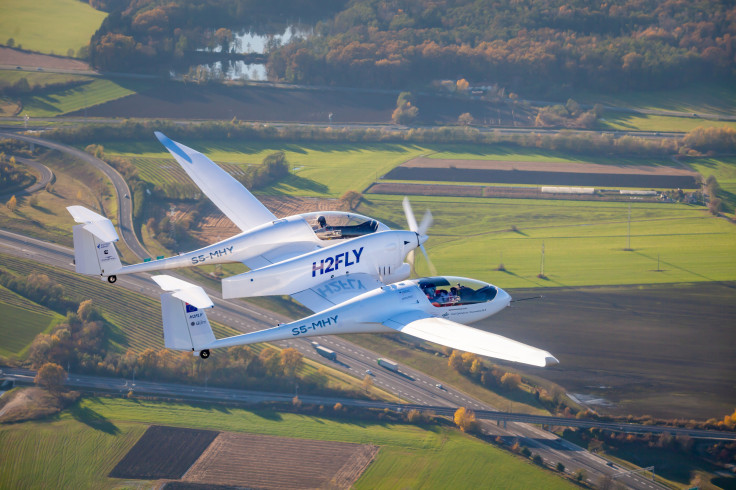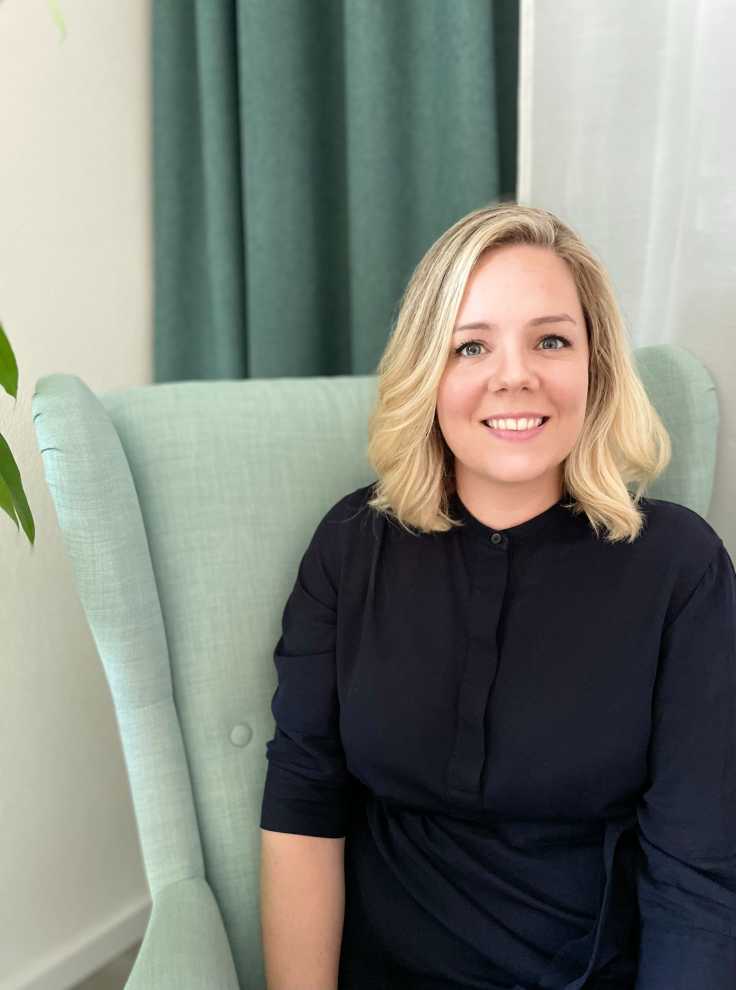Women in aviation are leading zero-emission flights
Aviation is responsible for almost 3 per cent of the global omission. At H2FLY, Mara Linn Beche, and engineer Debjani Ghosh are part of the change in starting carbon-free sustainable aviation.

As the topic around sustainability continues to grow, whether it's clothes, toxin-free household essentials or transport, we are now seeing more sustainable products in our everyday lives.
Pushing one of these endeavours to build sustainable measures and protect the earth are two women, working for one of the leading forces behind sustainable aviation - H2FLY
Aviation is responsible for almost 3 per cent of the global human-generated Co2 omission and without urgent action this could potentially increase to 22 per cent by 2050 according to the aviation-industry group Energy Transitions Commission. Current research shows the UK will be facing risks of increased floods from climate change, with the damage caused by floods throughout the country rising to 25 per cent.
At the cusp of introducing to the world hydrogen-electric fuelled flights, H2FLY a German-based company is making strides in sustainable flying
At the forefront of this project are project manager Mara Linn Beche and design and development engineer Debjani Ghosh.
"What today's aviation looks like is it's done with the traditional oil, which has lots of carbon emissions and greenhouse gas emissions," said Debjani.

H2FLY has been flying a four-seat aircraft called the HY4 on a fuel cell powered by hydrogen gas since 2016. H2FLY aircraft set a record for the highest zero-emission flight reaching 7,230 feet in April.
She further added, "It's no longer a concept. We have proved that emission-free flying is indeed possible."
H2FLY and Stuttgart Airport have announced a joint project to open a Hydrogen Aviation Centre, a facility to further develop designs for zero-emission hydrogen electric aviation while testing them in the airport.
The centre will be scheduled to open in 2024. For Mara, who has been sustainability manager for seven years, this is the 'new revolution of flying.'
Despite Debjani and Mara being one of the few to bring the project alive, it is no secret the prevalence of gender-gap in their respective roles.
As an engineer, working in the aviation industry, Debjani has always envisioned herself in this career. She said, "I always liked problem-solving. And particularly, [because] I came from an electrical engineering background, when I was doing my higher study, I was very much interested towards renewable energy towards clean energy making our environment better with the technology."
Despite women being involved in aviation engineering for almost 100 years, from Elizabeth Muriel Gregory being the first woman to earn an aeronautical engineering degree in 1929, there are still shockingly low numbers of women in the field.
"The one thing is there are actually not many women working in the aviation industry, particularly if you look into the engineering sector where I'm from. It's a very male-dominating territory," said the engineer.
While women make up approximately 41 per cent of Europe's aviation employees, there's a low percentage of female presence in technical roles, a stark contrast to the almost 80 per cent of women working as flight crew members.
In the UK, women make up just 13.3 per cent of all engineers, out of 6.1m engineering jobs in the UK. The UK, research shows, suffers from an acute shortage of engineers - 1.8 million new engineers and technicians are needed by 2025 – as well as a "leaky pipeline", meaning women often fail to continue to progress in their engineering careers.
Part of this issue is the ongoing biases and social norms that stop women from occupying STEM roles, with only 35 per cent of STEM students in higher education globally being women.
As Debjani progressed into her career, she recalls feeling isolated. "Sometimes you feel a bit isolated, let's say sometimes a bit lonely. But we have to overcome it, the more women start coming here, the better," she said.
Yet both she and Mara, who has also spent most of her career as both a pilot and sustainability manager, remain resolute - their determination to create a better world driving them to be the exception in a predominately male career field.
"I think what's the most important thing is to dare to apply [yourself] and to not think you're disturbing," described Mara.

Studies have revealed that too often women don't negotiate or are underplaying their confidence, with Mara saying, "It's female behaviour to be polite."
The sustainability industry, whether working in aviation like Mara and Debjani or living environmentally friendly, is mostly championed by women research has shown.
Jack Duckett, associate director of consumer lifestyles research at British research firm Mintel, described the phenomenon in a 2018 report which looked at areas of significant male/female contrast in ethics and sustainability on a national level. Its data revealed that men are less likely to choose environmentally friendly options than women - a disparity which the research refuted as an eco-gender gap.
At a national level, 71 per cent of women are increasing their commitment to ethical living in the UK, and just 59 per cent of men say they've been living more ethically over the past year.
An impressive 61 per cent of people living in the UK say they are trying to encourage their family/friends to be more ethical. Yet, only 56 per cent of men are less inclined, than 65 per cent of women, to encourage their friends to adopt an ethical lifestyle.
Mara believes it's women's natural inclination towards preserving this world for the future of their children and grandchildren that drives them to sustainability.
"From a historical perspective, women care more about their families," she explained. "We care a lot, maybe we're a little bit more empathic. And maybe that leads to more attention to how our nature is treated, and how we want it to be treated."
It's this purpose that drives Mara and her strong motivation towards her work, believing what she does matters.
The impact of climate and ecological crises aren't felt equally. Vulnerability to climate change is increased by inequality and marginalisation linked to gender, socio-economic background and ethnicity.
Disasters caused by extreme weather have higher fatalities among women than men. Cyclone Gorky, which hit Bangladesh in 1991, caused around 140,000 deaths, making the disparity between genders in terms of survival 14:1. Furthermore, 61 per cent of those who died in 2008's Cyclone Nargis in Myanmar were women , and in some severely affected villages, twice as many women aged 18-60 died as men.
In Europe, heatwaves are more likely to impact women, as shown by France's 2003 heatwave where 15 per cent more women were likely to die.
"There was a study of a big German university, who said, there's no chance that we will achieve that 1.5 Celsius degree goal," Mara said, referring to the Paris Agreement that entailed emissions need to be reduced by 45 per cent by 2030, and reach net zero by 2050.
"I think if more or less rich countries are not able to achieve that goal. Net Zero or 1.5 degrees, I have no idea how others can, besides the fact that they are not emitting so much."
"We need consequences. We need our governments to act," said the project manager.
In spite of the frustrations they both face, Mara and Debjani are hopeful that their project at H2FLY will introduce to the world a safer, cleaner form of flying.
© Copyright IBTimes 2025. All rights reserved.






















